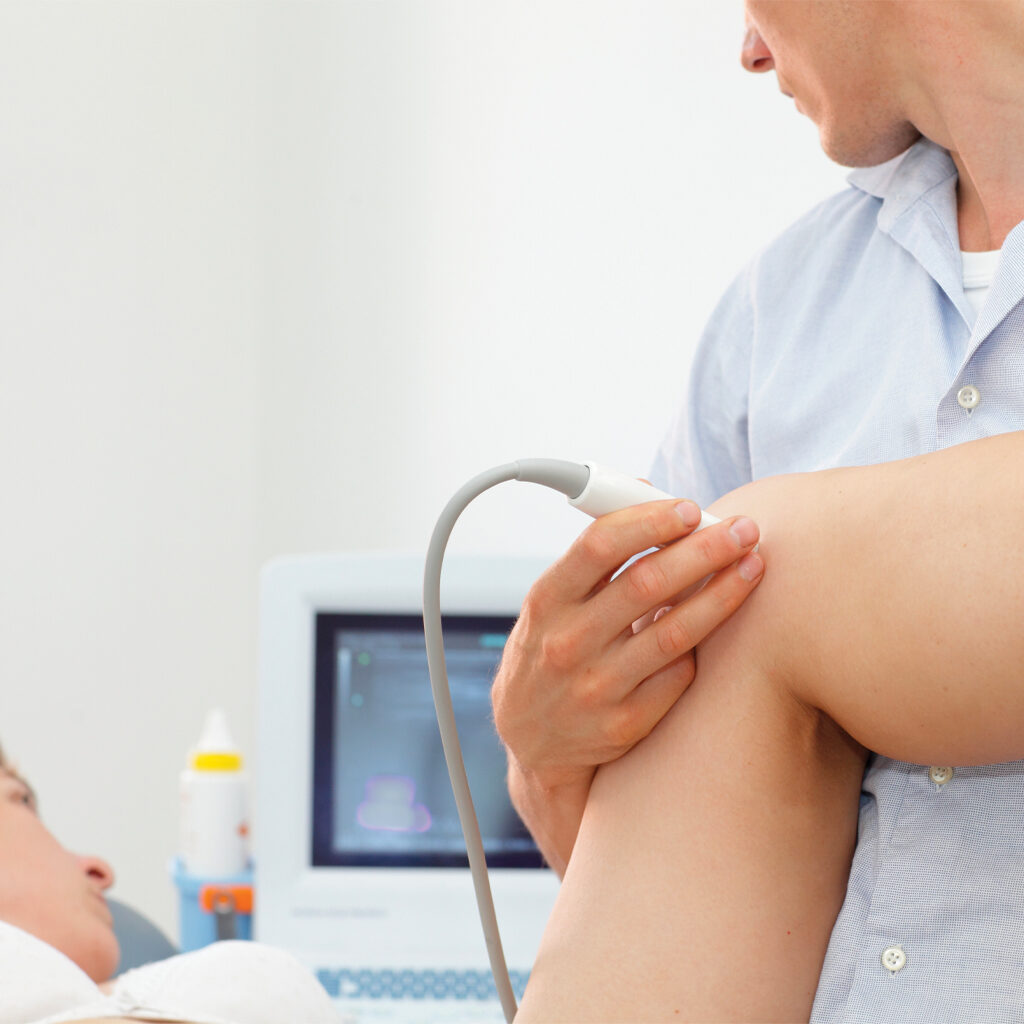Ultrasound
Ultrasound (also known as sonography) produces images of the inside of the body by generating high-frequency sound waves. As the sound waves bounce off internal organs and tissues, they create echoes. A computer then translates these echoes into images on a screen. These images can show abnormalities or disease within the body. This test is completely free of radiation, which is why ultrasound is so often used in prenatal imaging.
The ultrasound facility at Radiology Associates of Ridgewood is certified by the American College of Radiology. All of our personnel are registered with the American Registry of Diagnostic Medical Sonographers. We take pride in providing state-of-the-art computed sonographic imaging equipment.
The following types of ultrasound examinations are available at Radiology Associates of Ridgewood
- Obstetrical
- Gynecologic
- Abdominal
- Thyroid
- Vascular (includes Carotid, Venous)
- Pediatric
- Breast (includes aspiration and core biopsies)
- Breast Elastography
Breast Elastography
This technique uses a modified form of ultrasound to determine whether a breast lesion (mass) is benign or malignant. During this test, a specially trained sonographer measures the tissue characteristics of a suspicious lesion. Malignant tumors tend to be more stiff than normal glandular tissue and can help determine if a biopsy is needed. Benign tumors are softer in nature. This test offers a high sensitivity and specificity, which means that you may be able to avoid a breast biopsy if the mass has a low probability of being cancerous.
This test is especially useful for women with suspected breast cancer found on mammography or ultrasound. Because less than 30% of breast biopsies show a malignancy1,2, this test can help women avoid the discomfort of a breast biopsy, as well as the inconvenience and additional cost.
For most ultrasound examinations, no special preparation is required. However, if you are having one of the following types of ultrasound, some preparation is required. Additional and/or different instructions may be given to you when you schedule your appointment.
For Pregnancy or Pelvic Examinations
- You may eat normally.
- Your bladder must be full for this examination. Drink at least 32 ounces of liquid one hour prior to your examination. We recommend you avoid caffeinated beverages.
- Please do not urinate until after your examination is completed. If you are very uncomfortable, please notify our staff when you arrive.
- Allow 45-50 minutes for the examination.
Abdominal Examinations
- Nothing by mouth after midnight.
- Allow 45-60 minutes for the examination.
Kidney Examination
- Drink 20 ounces of water one full hour before your examination.

